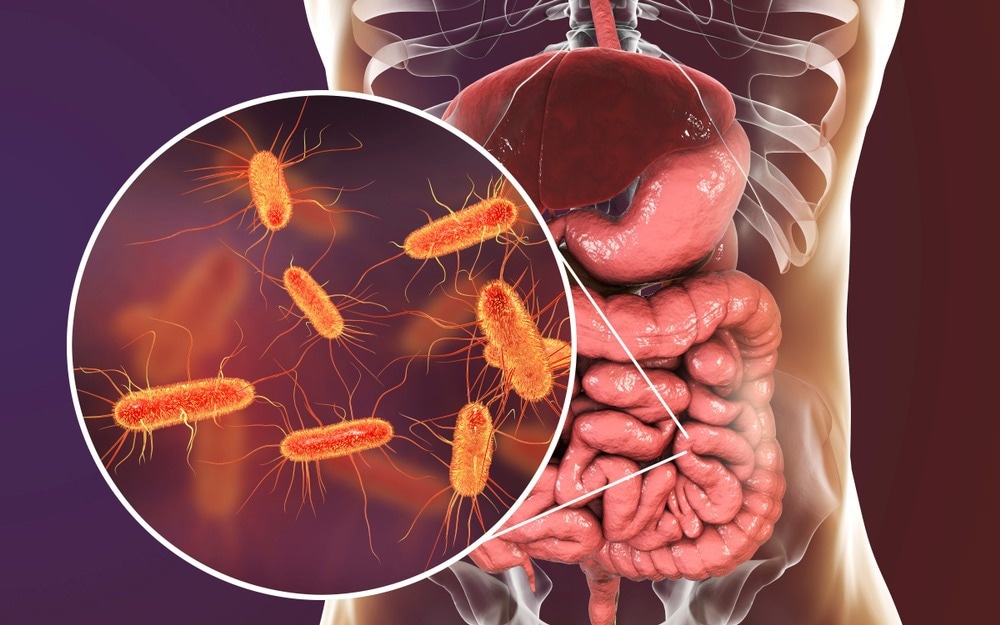Written by Keynote Contributor Dr. Balachundhar Subramaniam, Director of the Sadhguru Centre for a Conscious Planet at Beth Israel Deaconess Medical Center and Professor of Anaesthesiology at Harvard Medical School.
Gut health is currently receiving significant attention in the medical and nutritional fields. On a daily basis, there are discoveries of new foods and supplements purported to enhance gut health. Nonetheless, there is substantiated evidence supporting the theory that gut health is a crucial factor in addressing a multitude of medical conditions.
It is a well-recited statistic that there are approximately 500 million neurons in the gut and 100 billion neurons in the brain1. The link between a healthy gut and a healthy brain has been well-established, with many looking to eat probiotic foods to boost mental health.
Yet fewer realize that this is a two-way relationship. Just as your gut health can impact your brain, your brain’s activity can have positive impacts on your gut microbiome, too.
The Gut-Brain Axis
The gut-brain axis essentially refers to the biochemical signaling that takes place between the neurons in the gastrointestinal tract and the central nervous system. This two-way street involves the central nervous system (CNS), the enteric nervous system (ENS), and the gut microbiota, which acts as a complex network of interactions that regulate digestive processes, mood, and overall health.
The human gut microbiome, comprising trillions of microorganisms, is a cornerstone of every person’s physical and mental health. These microorganisms produce neurotransmitters and neuroactive compounds, such as serotonin and gamma-aminobutyric acid (GABA), which help to support our mood and cognitive functioning.
When our microbiome doesn’t function properly, our body and mind notice. Studies show that poor gut health has been associated with cancer, cardiovascular disease, and bowel inflammatory disease2, along with mental health diseases like anxiety and depression3.

Intestinal microbiome, 3D illustration showing anatomy of human digestive system and enteric bacteria. Image Credit: Kateryna Kon/Shutterstock.com
The mechanisms in the gut include immune system activation, alterations in the gut’s structure, and the resultant inflammation, which can impact the brain's structure and function, ultimately affecting our behavior and emotions. In short, the gut really is the body’s second brain.
Meditation's Effects on Gut Health
Meditation practices, ranging from mindfulness meditation to deep breathing exercises, deliberately induce a state of relaxation and focused attention. While forms of meditation have been present in many Eastern cultures for millennia, these practices are gaining an increasing amount of impact in Western cultures, too. Apps like Headspace, Sadhguru, and Mind have amassed hundreds of millions of users.
Beyond the described spiritual benefits, these practices can lead to physiological changes, such as reduced heart rate and lowered blood pressure, conducive to stress reduction and overall well-being4.
Stress is a well-known aggravator of gut dysfunction, impacting gut motility, barrier function, and the microbiome. Meditation, through its stress-reducing effects, can positively influence gut health by modulating these stress-related changes. It helps to restore the balance of gut bacteria, improving gut barrier function and reducing inflammation.
Emerging research underscores the positive impact of regular meditation practice on gut health. Our collaborative research focussed on the impact that an 8-day Isha Meditation Samyana practice would have on participants' microbiome and overall health.
This study5, involving 64 participants, aimed to explore the effects of this advanced meditative process on various blood lipids and how they are digested and, therefore, their implications for physical and mental well-being. Through high-resolution mass spectrometric analysis, we found that post-retreat, participants exhibited increased levels of acylglycines—an endocannabinoid-like compound known for its anti-inflammatory, analgesic, and vascular relaxation properties.
Additionally, there was a decrease in glycerophosphocholines, glycerophosphoethanolamines, specific plasmalogens, cholesterol esters, acylcarnitines, and triacylglycerols/diacylglycerols, which indicated a reduction in substances associated with atherosclerosis risk. This research highlights the potential of advanced meditation practices, like those taught in the Samyama program, to positively impact lipid metabolism in the intestines and gut.
In another collaborative study with 288 subjects, we found an increase in beneficial bacteria even three months after the completion of an advanced meditation program that had a crucial preparation time with a vegan time containing 50% raw food for over 60 days. The stool samples were analyzed with 16sRNA sequencing in this study.6
Yet our research was not alone in establishing how a healthier mind interacts with a healthier gut. One study7 was conducted that compared the gut microbiomes of Tibetan Buddhist monks to their secular neighbors. The study found significant differences potentially linked to lower risks of anxiety, depression, and cardiovascular disease. The monks' gut microbiomes were enriched in increased levels of specific bacteria like Prevotella and Bacteroides. Despite the small sample size of 37 monks and 19 neighbors, this research supports our findings.
The monks, practicing Tibetan Buddhist meditation daily for years, showed a gut microbiome composition that might promote anti-inflammatory pathways and better metabolism, along with lower levels of cardiovascular disease markers. Although the study's limitations include its small, all-male sample size and observational nature, it supports meditation's potential role in improving and supporting gut health.

Luna Vandoorne. Image Credit: Luna Vandoorne/Shutterstock.com
Conclusion
Chronic stress can wreak havoc on gastrointestinal function and the wider brain-gut axis. This can lead to alterations in gut motility, increased intestinal permeability (leaky gut), and changes in the gut microbiota. This has been shown to lead to the development of gastrointestinal disorders such as irritable bowel syndrome (IBS) and inflammatory bowel disease (IBD).
The link between stress, gut health, and gastrointestinal disorders is not only well-established; it’s gaining momentum. Stress-related modulation of the gut-brain axis can trigger or worsen conditions like IBS and IBD, which points to how crucial it is to incorporate stress-reducing abilities into your everyday life.
Effective stress management is crucial for maintaining gut health. Practices such as Isha Yoga meditations, yoga, mindfulness meditation, and cognitive-behavioral therapy have been shown to reduce stress levels and, consequently, positively impact gut health. Implementing these practices into our lives will increasingly be shown to be a key strategy in preventing or alleviating gut-related health issues.
In conclusion, the complex relationship between the mind and the gut is being slowly unraveled. Meditation, through its stress reduction properties, could positively affect the gut microbiome, making it a promising, therapeutic, and preventive tool for managing gut health, along with a range of other symptoms.
References
- Herculano-Houzel, Suzana, (2009) The Human Brain in Numbers, a Linearly Scaled-up Primate Brain doi: https://www.ncbi.nlm.nih.gov/pmc/articles/PMC2776484/
- Madhogaria, Barkha et al,. (2022). Correlation between the human gut microbiome and diseases. Infectious Medicine. doi: https://doi.org/10.1016/j.imj.2022.08.004 https://www.sciencedirect.com/science/article/pii/S2772431X22000375
- Clapp, M., Aurora, N., Herrera, L., Bhatia, M., Wilen, E., & Wakefield, S. (2017). Gut microbiota's effect on mental health: The gut-brain axis. Clinics and practice, 7(4), 987. doi: https://doi.org/10.4081/cp.2017.987
- Jamil, A., Gutlapalli, S. D., Ali, M., Oble, M. J. P., Sonia, S. N., George, S., Shahi, S. R., Ali, Z., Abaza, A., & Mohammed, L. (2023). Meditation and Its Mental and Physical Health Benefits in 2023. Cureus, 15(6), e40650. doi: https://doi.org/10.7759/cureus.40650
- Vishnubhotla, R. V., Wood, P. L., Verma, A., Cebak, J. E., Hariri, S., Mudigonda, M., Alankar, S., Maturi, R., Orui, H., Subramaniam, B., Palwale, D., Renschler, J. and Sadhasivam, S. (2022) Journal of Integrative and Complementary Medicine, 28(8), pp. 674–682. doi: 10.1089/jicm.2022.0480.
- Raman, M., Vishnubhotla, R., Ramay, H. R., Gonçalves, M. C., Shin, A. S., Pawale, D., Subramaniam, B. and Sadhasivam, S. (2023) BMC Complementary Medicine and Therapies, 23(1). doi: 10.1186/s12906-023-03935-8.
- Sun Y, Ju P, Xue T, et al. Alteration of faecal microbiota balance related to long-term deep meditation. General Psychiatry 2023;36:e100893. doi: 10.1136/gpsych-2022-100893
About Dr. Balachundhar Subramaniam
Dr. Subramaniam earned his medical degree from Jawaharlal Institute of Postgraduate Medical Education and Research (JIPMER) in Pondicherry, India. He then pursued his anesthesiology residency from All India Institute of Medical Sciences (AIIMS), New Delhi, and  gained expertise in cardiac anesthesiology following a degree from Harvard Medical School, Boston. He also completed a master of public health in clinical effectiveness research from Harvard T.H. Chan School of Public Health, Boston.
gained expertise in cardiac anesthesiology following a degree from Harvard Medical School, Boston. He also completed a master of public health in clinical effectiveness research from Harvard T.H. Chan School of Public Health, Boston.
He was awarded the Ellison “Jeep” Pierce Chair of Anesthesia. He is the director of the Center for Anesthesia Research Excellence at Beth Israel Deaconess Medical Center, and an associate professor of anesthesiology at Harvard Medical School. He is also the director for Sadhguru Center for a Conscious Planet.
He conducts research in perioperative outcomes and has a special interest in meditation as a pre-habilitation tool in cardiac surgical population. He also researches the effects of meditation on sleep quality, cognition, stress and resilience, and physician burnout, and gut microbiome.
Disclaimer: This article has not been subjected to peer review and is presented as the personal views of a qualified expert in the subject in accordance with the general terms and conditions of use of the News-Medical.Net website.
Last Updated: Jan 12, 2025